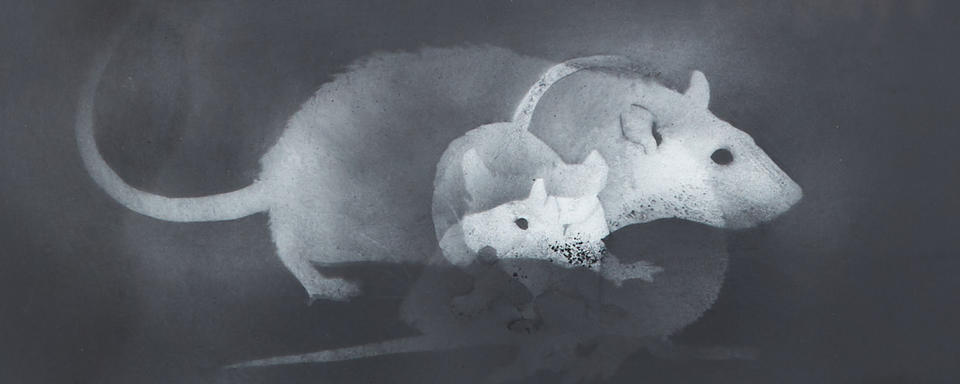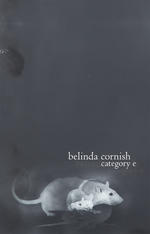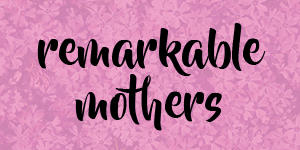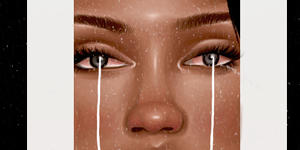
Deceptively light and menacing
An interview with Belinda Cornish on Category E
In Category E, three human test subjects coexist in one cell with only two beds. Between being called for tests that benefit higher-valued citizens, they discuss how they ended up in the lab, make guesses about who’s next door, eat what is given to them, and try their best not to kill each other. Belinda Cornish’s black comedy takes a wry and unsentimental look at the cavalier cruelties of animal science and asks how we place value on life. Here, Belinda discusses her motivations behind writing this kind of play, and what it’s like to put some levity in a horrific subject.
What inspired you to write a play about animal testing? What’s your experience with the topic?
Ever since I was a child, I've been an animal rights supporter. I've never subscribed to the "Team Human" attitude—the belief that our big brains make our lives of the greatest value. Because really, that's what animal testing comes down to: we'll test our products on animals first, because their lives are disposable. We have turned the natural drive for survival that makes each species fight for itself into a belief that we are actually worth more. How do we really justify that?
A few years ago, I started (rather belatedly) making a real effort to buy cruelty-free products, assuming that this wouldn't be a challenge in the modern world. But it was. When I asked staff in drugstores if they stocked cruelty-free makeup, they were baffled. When I started digging a little further, I realized how horribly prevalent animal testing still is—it's a huge, ugly, capricious black hole, and I fell in headfirst. I think the thing that tipped me over was learning that rabbits will sometimes break their backs trying to escape the restraints. That's a sentient creature fighting so hard to escape pain that it snaps its own spine, so that we can have mascara. Is it sentimental to be horrified by that?
And yes, we do utterly terrible things to each other, too, so I understand that, in the fight to curb wanton cruelty and death, the tendency is to put our own species first. However, I didn't see the unsexy subject of animal science being tackled elsewhere, and it's something I'm passionate about. And while this play stems from a response to animal testing, its themes stretch further into a bigger question regarding how we quantify the value of any individual's life. In this play, the focus is on intelligence level, but, as we well know, groups of humans perpetually employ the excuse of "otherness" to justify the devaluing of life for their own purposes.
What was the process for you of deciding it would have a comedic tone rather than straight drama?
I think levity helps! When you're dealing with a horrific subject, the lightness throws the darkness into even deeper shade. Laughing at something very dark is gleefully discomfiting; it lands lightly and then burrows beneath the skin. I wanted a deceptively light, menacing tone, where there is always a threat of something dreadful, but you never quite know what it is. I also wanted it to be entertaining—I wanted people to want to see it, because it wouldn't be any good at all if no one came.
What was it like to write the characters Corcoran, Filigree, and Millet?
It's odd, but I actually think the characters in this play are very human. The thing that might make them seem dehumanized is that they don't try to escape—they just accept their fate. If they wanted to rebel and overthrow the system, that would be a play about escaping oppression, challenging the system, which isn't what this is about. I wanted to create a world where these people were conditioned to accept their fate, like the characters in Logan's Run who go willingly to Carrousel. This makes them respond as passively as rabbits or beagles to what's happening to them, which is a horrible thing to watch, and which makes the point more successfully. The tricky thing in writing it was the dialogue. I really didn't want the play to be about expositing an elaborate dystopia—fun as that would be for me! I wanted to veil the realities of the experiments, because it's better if your imagination connects the dots. So I had three characters who were unable to speak extensively about the things we normally discuss—family, politics, religion, hopes, dreams, fears—what the hell were they going to say to each other?? Turns out, a fair bit.
What are some books or documentaries you could recommend for someone who wants to read more about animal testing?
I'll admit, I stay away from documentaries or anything too visual when it comes to this stuff. I've been down the rabbit hole and I'm too much of a coward to go back. A book I'll recommend is Michael Slusher's memoir They All Had Eyes: Confessions of a Vivisectionist—he knows the industry from the inside, and can tell you everything you want to know, and many, many things you don't. But if you want to go straight to making a change, try leapingbunny.org and crueltyfreekitty.com—they're great resources for product lines, and also can help you learn what cruelty-free really means. Things are improving, no doubt, with more cosmetic lines heading towards alternative testing methods, but medical and scientific testing continues unabated with arguably questionable results, as does agricultural experimentation, and we are generally woefully under-informed.
What do you want people to take away after reading this play?
I hope people enjoy this play. I hope they laugh and are entertained and a little horrified. And then I hope they go away and dig deeper, ask questions, or even simply start trying to make more conscientious purchases—because we can use our money to vote for change.
What’s next for you?
As I write this, I'm sitting in a lovely room at the Banff Centre for Arts and Creativity, where I'm participating in the Banff Playwrights Lab, working on an adaptation of Todd Babiak's acclaimed novel The Garneau Block—it's heavenly! The Garneau Block is a commission from the Citadel Theatre and is due to be produced in March 2020 with Rachel Peake at the directorial helm, a total dream-come-true. Then, in January 2021, the remarkable Firefly Circus and Theatre is producing Inferno, an adaptation of Dante's Inferno which I co-wrote with my sister-from-another-mister Jocelyn Ahlf; we did a workshop presentation of the show earlier this year, and it was one of the most exquisite theatre experiences I have ever had, so I can't wait to embark on the full version.
Want more? Get your copy of Category E now!



Comments